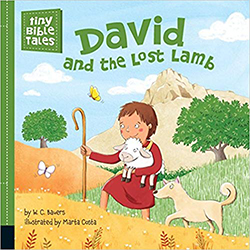Posted: 6/11/04
Some want single Bible translation
to become universal English standard
By Douglas Todd
Religion News Service
VANCOUVER, British Columbia (RNS)–An American academic wants to see a Bible translation put together by scores of conservative scholars become the one Bible everyone uses.
Alan Jacobs, an English professor at Wheaton College near Chicago, said the new English Standard Version Bible, whose translation was overseen by Vancouver's J.I. Packer, is the only one with the potential to become the universal Bible of all English-speaking Christians.
Jacobs laments the end of the era when most English-speaking Protestants read and quoted from the same Bible–the King James Version, first published in England in 1611.
“Everyone who grew up with the (King James Version) feels the loss of a shared language, of particular words and phrases that resonated in the common ear,” Jacobs wrote in First Things magazine.
With more than 100 English-language Bible translations now competing against one another, Jacobs called the English Standard Version “the best available English Bible.”
It was created two years ago by a team of about 100 conservative Protestants led by Packer of Regent College, an evangelical post-graduate school on the University of British Columbia campus.
However, some Bible scholars consider Jacobs' high-profile campaign to champion one common English-language Bible quixotic and misguided at best and imperialistic at worst.
“It sounds like ecclesiastical and scholarly tyranny we shouldn't put up with,” said Professor Lloyd Gaston, a veteran Bible scholar at the Vancouver School of Theology.
“The more Bible translations we have, the better,” Gaston said. It's good for people of faith to realize there are many different ways of interpreting ancient Bible stories, he added.
“It seems to me anyone who suggests using just one Bible is simply making a pitch for their own favorite translation,” said Gaston, whose students come from a variety of Christian backgrounds, including Anglican, United Church of Canada, Presbyterian and Catholic.
“It creates the danger of not truly listening to the Bible in all its complexity, but just listening to one voice. It narrows the range of possibilities, which some Christians might like, but not all,” Gaston said.
Although Jacobs had no role in translating the ESV, he is a friend of Packer and a fellow evangelical.
The literary chairman of the ESV translation team is Jacobs' English faculty colleague at Wheaton College, Leland Ryken, who routinely criticizes modern Bible translations.
In his essay, Jacobs glosses over how Roman Catholics, for instance, have never used the King James Bible, while many have read the Douai-Rheims translation, which reflected similar language.
Today, many Catholics prefer The Jerusalem Bible, while many mainline Protestants read the New Revised Standard Version and many evangelicals use the New International Version.
Even Packer, the translation's general editor, backed away from Jacobs' hope that one Bible translation would dominate the world's English-language Christian community.
There is no such thing as a definitive translation of the Bible, Packer said, and it would be “foolish” of him and his colleagues to suggest theirs is the last word.
As for Jacobs' claim that the ESV is “the best available English Bible,” Packer is flattered, but said: “Our only claim is that for the purposes for which we need the Bible, this ESV is as good as any and better than some. But we would be foolish to say it's the last word.
“People have different cultural backgrounds. They talk and read English at different levels. The different versions choose their English idioms to plug into the literary backgrounds which they think their intended readers have.”
Packer, 77, said the audience for his team's translation is “the kind of people who are bewildered by the pressure to embrace novel understandings of the faith and paraphrased translations of the Bible. We believe there's a large constituency of people who appreciate a more conservative Bible.”
The ESV translation, which Packer prepared with other biblical scholars from throughout North America, is a more literal translation than other translations, he said.
Packer said more “liberal” translations of the Bible rely more heavily on paraphrasing the original Greek, Hebrew or Aramaic, whereas his translation uses, wherever possible, the precise words of the original, or as close to them as differences in language will allow.
Jacobs, however, said one of his main reasons for arguing for the supremacy of the ESV is his concern that other modern Bible translations lack good English style.
The ESV slightly reworks the popular 1952 Revised Standard Version, for instance, dropping “thees” and “thous.” Still, Jacobs favors “deference to existing excellence”–if a King James or Revised Standard Version phrase is accurate and understandable, keep it.














We seek to connect God’s story and God’s people around the world. To learn more about God’s story, click here.
Send comments and feedback to Eric Black, our editor. For comments to be published, please specify “letter to the editor.” Maximum length for publication is 300 words.